South Africa walking safari
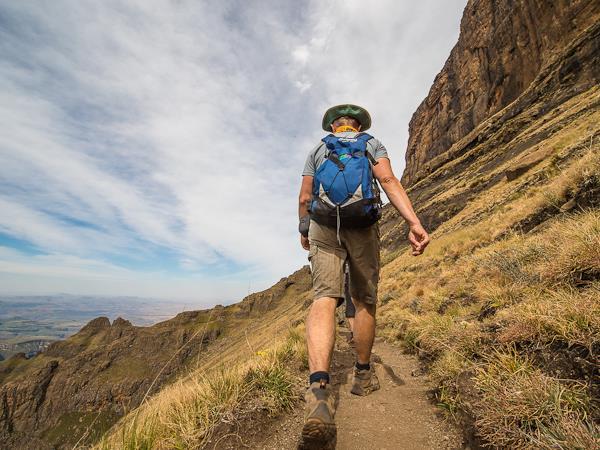
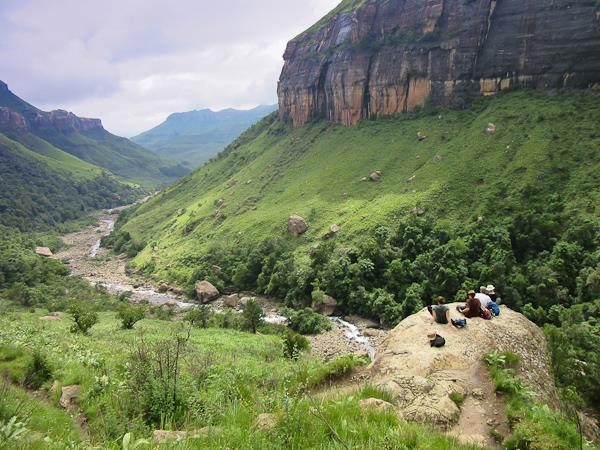
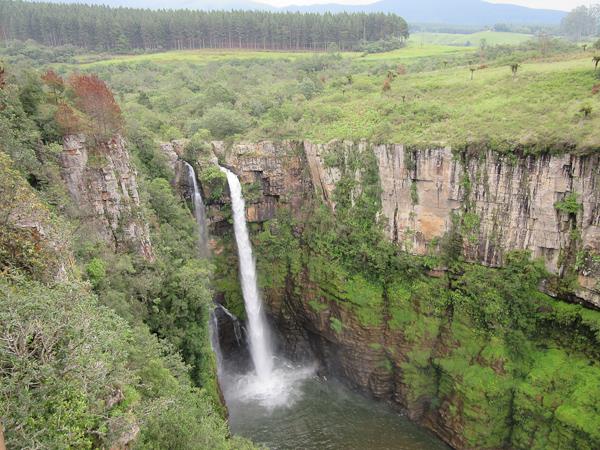
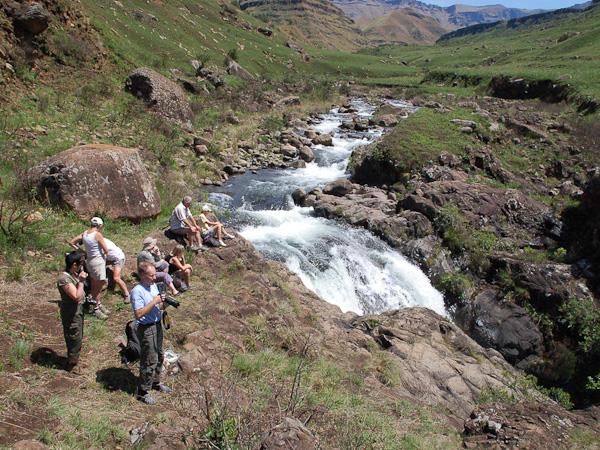
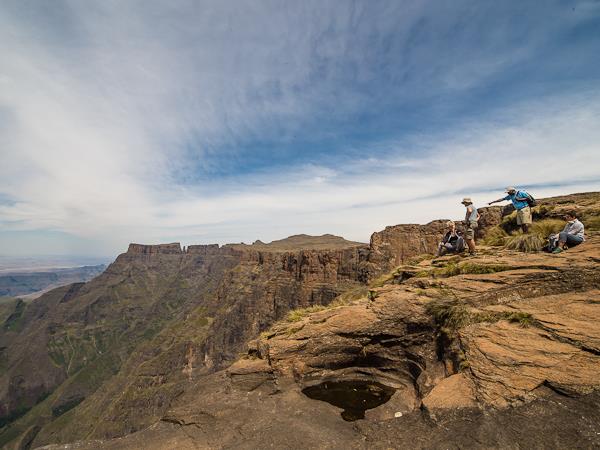
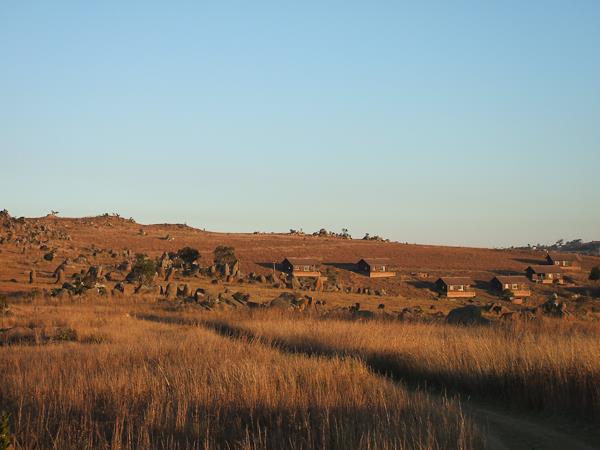
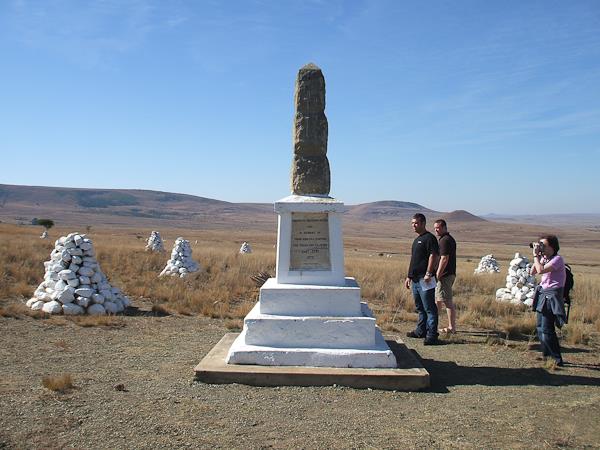
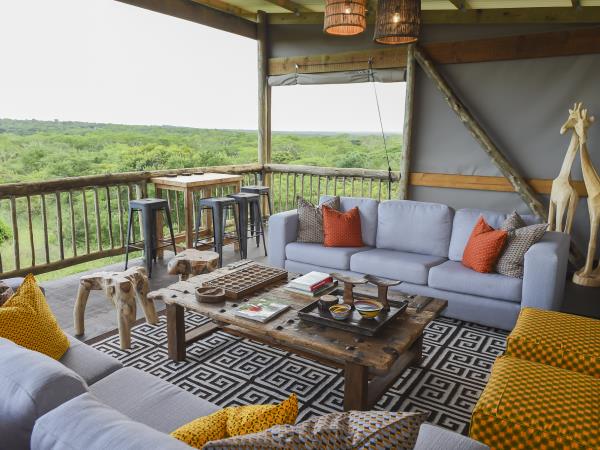
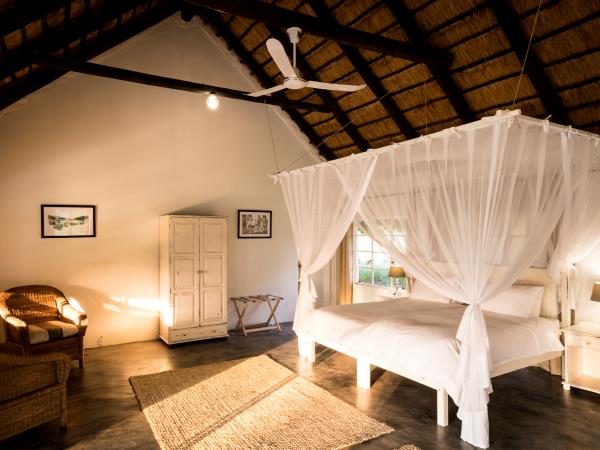
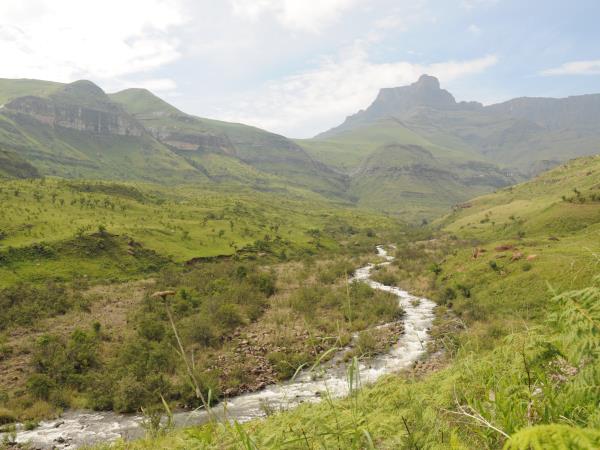
Camping, walking and wildlife watching in the national parks, mountain ranges and protected waterways of South Africa and Swaziland.
Mpumalanga Pilgrims Rest God’s Window Mac Mac Pools Blyde River Canyon Kruger National Park Kingdom of Swaziland Malalotja Nature Reserve Zululand Hluhluwe Game Reserve False Bay Drakensberg Mountains Witsieshoek KwaZulul Natal Tugela Falls
Price
US $2245excluding flights
Duration
14 Days
Countries
Eswatini (Swaziland), South Africa
Type
Small group
Group size
Up to 12 people
Reviews
More info
Single supplement: USD 411 (2023) USD 412 (2024)
(If traveling on your own, we will “room” you with another same gender client.
You do not pay extra when traveling alone.
If you request a single room, then you'll pay the single supplement.)
You do not pay extra when traveling alone.
If you request a single room, then you'll pay the single supplement.)
Description of South Africa walking safari
Map
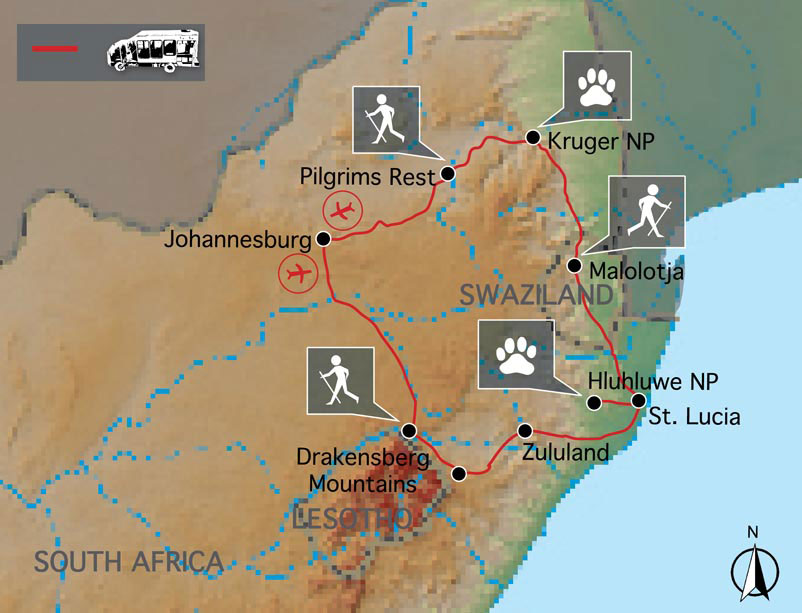
Price information
Check dates, prices & availability
Travel guides
Before the end of Apartheid, KwaZulu-Natal was known simply as Natal. ‘KwaZulu’ - the ‘Place of the Zulus’ – was not recognised as an official part of...
Vacation information
'Free from' food:
We can cater for Vegans, Vegetarians, gluten free and celiac. We will just need to know this ahead of time when the bookings are being made.
LGBT:
With experience of personally guiding tours through a large number of African countries, and having previously led groups including LGBT travelers through those countries, I have not experienced any issues in accommodations or during the trip as a whole to date.
The important thing is to know the local laws and gain an understanding of local points of view before you travel – we can advise you on these and the UK Foreign office FCO also has lots of country-specific information on local laws and customs. If a country is on the conservative side, generally being careful not to openly show affection in public for example is enough to ensure a safe and enjoyable trip. All our guides are welcoming of LGBT travelers and will be happy to give advice on the trip when/where needed.
Reviews
1 Reviews of South Africa walking safari
4 out of 5 stars
Reviewed on 13 Aug 2014 by Hilary Cooper
1. What was the most memorable or exciting part of your vacation?
Has to be Kruger National Park game drives but every day offered something exciting.
2. What tips would you give other travelers booking this vacation?
Be aware that if you are British you may be the only English first language speaker as this company don't seem to sell many vacations to the UK - don't know why as they are great.
3. Did you feel that your vacation benefited local people, reduced environmental impacts or supported conservation?
Yes but it wasn't a main theme
4. Finally, how would you rate your vacation overall?
Excellent value, great fun,exciting
Read the operator's response here:
Dear Hilary
Thank you so much for our review and positive comments. Thank you again for also sending us a review directly. It is greatly appreciated.
I agree that every day offers something new and a different highlight. Kruger is a truly wonderful game reserve and is world renown for a reason. I hope you saw some great game and if you have any photos from your tour that you would like to share, we would be thrilled to receive them.
I understand that it is sometimes difficult when there are clients of all nationalities and sometimes tours end up with many English speaking clients and sometimes, like on your tour, you were the only first language English speaker. I don’t believe this detracted too much from your experience as you have such wonderful feedback.
With regards to question 3 I wanted to clarify that we try and use National and Provincial parks as much as possible, as well as community projects. We use the recycling of the properties we use rather than in the vehicle where there is limited space. Most properties separate the rubbish rather than have multiple bins. So while you may not be aware of all of the conservation efforts, it is a focus for us in our decision making, itinerary planning and choice of properties.
Once again, thank you so much for your review and the time taken to not only review on Responsible Travel but to email us directly. We hope that you will choose to travel with us again in the future.
Kind regards
Jayne Harley
Marketing Manager
Thank you so much for our review and positive comments. Thank you again for also sending us a review directly. It is greatly appreciated.
I agree that every day offers something new and a different highlight. Kruger is a truly wonderful game reserve and is world renown for a reason. I hope you saw some great game and if you have any photos from your tour that you would like to share, we would be thrilled to receive them.
I understand that it is sometimes difficult when there are clients of all nationalities and sometimes tours end up with many English speaking clients and sometimes, like on your tour, you were the only first language English speaker. I don’t believe this detracted too much from your experience as you have such wonderful feedback.
With regards to question 3 I wanted to clarify that we try and use National and Provincial parks as much as possible, as well as community projects. We use the recycling of the properties we use rather than in the vehicle where there is limited space. Most properties separate the rubbish rather than have multiple bins. So while you may not be aware of all of the conservation efforts, it is a focus for us in our decision making, itinerary planning and choice of properties.
Once again, thank you so much for your review and the time taken to not only review on Responsible Travel but to email us directly. We hope that you will choose to travel with us again in the future.
Kind regards
Jayne Harley
Marketing Manager
Responsible Travel
As the pioneers of responsible tourism, we've screened this (and every) vacation so that you can travel knowing it will help support the places and people that you visit, and the planet. Read how below.
Planet and people
Message from co-Founder of this Tour Operator. My name is Bruce and I am a founder of this tour operation. I believe that the old conservation tactic of the setting aside areas of "exclusion" for conservation are outdated.The reality is that in order for effective, sustainable conservation to take place, there needs to be an interest from the society of that country, conscious effort from government and local "buy in" from the local communities. Sadly the world is in a place where economic benefit is the overriding driving force of action and as such conservation is directly linked to economic benefit. Sustainable tourism is therefore absolutely essential for conservation to be effective. Not only for local communities to see value in conservation, but for countries as a whole to place value in protecting their natural heritage.
I believe there is a deep and instinctual link between our humanity and our natural environment. Inherently we all want to know that the wild places are still out there. And Eco-tourism gives us that opportunity, as we so often hear, to "rebalance" or "rejuvenate".
The various promises and commitments detailed below are only a representation of what it is that we do. I sincerely hope that our tours offer our clients an opportunity to experience the wonders of the African continent, and in some small way through focusing itineraries around wildlife and national parks, we contribute to environmental conservation both economically and spiritually.
If you join one of our trips, and have practical feasible suggestions about our responsible travel practices, please contact us. We strive to improve our operation and if we can do more for conservation in Africa, then we're all ears!
Low impact tourism & supporting local communities:
• Small group travel: We specialise in small group travel with a maximum group size of 12 clients & minimum of 4. Small groups ensures a small impact on the destinations we visit when compared to larger groups. Smaller groups create an intimate safari experience, and mean that when we interact with local cultures and stay in environmentally sensitive areas, we do not leave a large footprint.
• Fuel consumption: By traveling in a small group your carbon foot print is approximately ˝ of self drive safari. The average pick-up car hire runs on approximately 12ltr/100km with generally 2 people per vehicle and this equates to approximately 6ltr/100km pp. Our average safari truck runs on 25ltr/100km with an average of 9.5 clients per tour and this equates to 2.6Ltr/100km pp. So, by joining a small group tour, your fuel consumption is less than half of doing a self-drive 4WD or pick up trip.
• Cooking: We cook using gas as far as possible and, whenever feasible, avoiding cooking using fire or coal which depletes limited wood resources.
• Wooden carving curios: We do take clients to local curio markets to support the local communities. If they want to buy a carving, we encourage clients purchase only small wooden carvings instead of large pieces. This is in an effort to again conserve the forests around the carving markets.
• Waste: We ensure that we take all of our rubbish out of wilderness areas and use proper waste disposal facilities on all tours (and in the workshop, including oil traps, oil recycling, cleaning products etc).
• Entrance fees: All entrance fees for the national parks in each country are used by the local authorities to maintain the condition and infrastructure of the national parks, and run regular anti-poaching patrols. These are often supplemented by government grants. The national parks support a large number of local community members often providing housing and schooling for the staff families. For us as a tour operator, supporting the various national park boards is an essential element to each tour.
• Accommodation: On all tours wherever possible we use locally owned accommodation establishments which are involved in local responsible tourism initiatives. This provides direct benefits to local communities through employment. We avoid large hotel chains and more commercial properties but opt for simple self-catering lodge, B&B’s and tented camps for accommodation in rural areas. By doing this we create an intimate environment for group away from large scale tourism and the communities around the accommodation benefit directly through employment and this creates pride and further interest in sustainable tourism as the communities have tangible benefits from tourism. Our tours focus on out of the way destinations, and as such, our “spend” is distributed into rural areas.
• Drinking Water: Each client, drinking 5 litres per day from 1 litre plastic bottles produces 100 waste plastic bottles on a 3 week safari. On this calculation, we would pollute the environment (and waste energy resources in plastic production) with over 250,000 plastic bottles per year! So as solution, each of our vehicles has a tank of clean drinking water that is filled up along the journey. This is safe tap water. We do not provide bottle water we encourage clients to drink the local clean drinkable tap water wherever possible in order to minimize the amount of plastic bottle waste produced by the purchase of bottled drinking water.
• Water conservation: We are acutely aware that in many areas that we visit water is a scarce resource. Clients are encouraged to be conscious of water usage and not to take long showers or waste water.
• Wildlife: On all game drives, our trained and qualified guides ensure that our groups interact with wildlife in the appropriate way. Slow movements, no loud noises and to respect the animals “personal” boundaries. Our philosophy is that we are visitors in the amazing places that we visit, and we do not want our presence to impact the wildlife and environment in any negative way. We also enforce a policy of not feeding any wildlife (animals habituated to human feeding will turn aggressive in the future which often results in authorities being forced to kill that animal) and to appreciate the natural state of the areas that we visit and to leave the area in exactly the same condition that it was when we arrived.
• Local guides & communities: On each tour you will travel with two guides for the entire trip. In addition, we also employ local guides for certain activities on tour. These local initiatives help to maintain local cultures and also sustain the ideals of wildlife conservation. Tourism, goodwill and conservation all work together and we aim to maintain the delicate balance at all times! The employment of local guide adds value to our clients visit because they can gain specific local knowledge and expertise from the people who actually live permanently in the area they are visiting. These interactions also give our clients the chance to meet local people and see how tourism is benefiting Africa, piece by piece.
We use local guides at:
Botswana: Okavango Delta, Chobe NP, Ghanzi San Bushman excursion, national parks
South Africa: Mkuzi village walk, Qunu Mandela historical site, Kozi Bay
Swailand: Hlane walking
Lesotho: Malealea Lodge pony trekking guide
Malawi: Boat excursion on Lake Malawi
Mozambique: Dhow excursions
Namibia: Brandberg walk and drives (part of the Tsiseb Community Conservancy), Spizkoppe walk, Gariep River canoeing, Sossusvlei 4WD drivers,
Zambia: Lower Zambezi Canoe excursion, South Luangwa game walks and drives, Vic Falls optional activities
Zimbabwe: Great Zimbabwe Monuments, Matobos NP, Hwange NP, Victoria Falls
For more information on each of the community projects please talk to your guide or contact us.
• Local crafts and produce: At all local markets where fresh produce and crafts are sold and produced, we encourage the clients to barter (gently and in good humour) with the local people. This not only allows the clients to get involved with the local way of life, and interact directly with the local people, but also provides them a platform to experience local life first hand. Having said that, we explain to the clients by bartering too hard for a good deal might seem like a lot of money at the time, but if the amount being haggled over is converted to either US$, Euro or GBP, it amounts to very little. This is the local livelihood and we advise them to keep this in mind at all times.
• Underprivileged Children Groups: We operate a number of tours into the national parks of South Africa for underprivileged children from schools based in Johannesburg, South Africa. PEN Organisation is an independent, non-governmental and social development organisation. Its activities focus on neglected and abandoned children and orphans, as well as disadvantaged families. We try to run these tours as often as possible during the course of a year. We believe that the youth are Africa’s future and that environmental education is important. This opportunity allows them to see for themselves wildlife (perhaps for the first time), nature conservation at work, and also show them employment opportunities that are available in the conservation or tourism industry, and possibly encourage them to follow a career in tourism (for this reason we aim these groups at 14-18 year olds).
• Wildlife Rehabilitation Centre: We assist a wildlife rehabilitation center in Springs, Johannesburg. Judy Davidson runs a licensed rehab center from a small holding. A variety of birds are cared for, from injured barbets, doves, and crows to a brown snake eagle, a Gymnogene, and spotted eagle owls. All birds are treated in a small makeshift clinic, and then kept in aviaries until they have recovered. Once able to fly, or care for themselves again, they are moved to a 'flight' aviary, for a period until they have regained strength. They are then released back into the wild. Those birds which are unable to be released are kept in large aviaries and fed through various donations. We assist the project with donations of practical equipment including shade netting, paint and other items on their wish list.
Popular similar vacations
Malawi & Zambia vacation, safari & beach
From Ł7250 13 days excluding flights
An unique and unusual safari and beach combination
Zimbabwe & Botswana game tracker safari
From US $2975 16 days excluding flights
A lodge safari through Kruger, Zimbabwe & Botswana
Mount Ololokwe trekking & safari vacation, Kenya
From US $1500 8 days excluding flights
Visit Ololokwe and the Ndoto mountains of Northern Kenya












